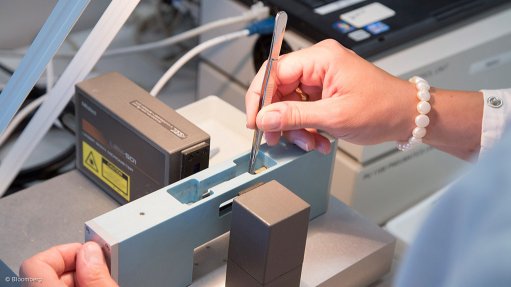
Photo by: Bloomberg
To promote innovation in the continent’s healthcare sector, diversified health and wellbeing company Philips has launched its first Innovation Fellows Competition, aimed at uncovering and supporting ideas that will change the local health industry, while assisting in tackling regionally relevant healthcare challenges.
The company on Thursday announced five competition finalists, of 61 entrants, with each having received R12 000. The winner, to be announced in November, would receive R200 000 towards research and development, as well as additional training and mentoring.
Africa bore 24% of the world’s health burden, but only had 3% of its healthcare facilities, a key reason why Philips was promoting innovation in the sector and seeking to unlock local talent and solutions.
The finalists included gynaecologist Dr Carol Thomas’ iMobiMama information technology platform and mobile kiosk that would increase access to maternal care.
University of Cape Town biomedical engineering senior lecturer Sudesh Sivarasu proposed the development of a low-cost portable mechanical noninvasive continuous positive airway pressure ventilator that was mechanically operated to tackle asthma in children aged five to ten.
Sivarasu emphasised that there was a significant healthcare disparity, with access to medical care significantly limited by import barriers, as 90% of the country’s medical devices were imported.
“South Africa has the fourth-highest death rate for asthma, in the age group of 5 to 35, with about four-million patients. About 20% of schoolgoing children have asthma, but only 2% get medical care. We want to target this,” he said.
Looking to ease the management of diabetes, which involved controlling blood sugar levels through monitoring one’s diet, exercising and checking blood glucose levels regularly to prevent the side effects of diabetes, such as kidney failure, innovator Ragesh Pillai created an application (app) and Web-based interface, which sought to improve diabetes management through remote monitoring and communication between patients and their caregivers at low cost.
Finalist Dean Hodgskiss’ solution, a real-time instruction manual, aimed at increasing the capacity of healthcare workers and medical equipment at primary healthcare sites through the use of a mobile communication app specifically developed to operate effectively under challenging African telecommunications conditions.
The app would be able to run on Android, iOS and Windows, allowing caregivers in remote areas to connect to anyone else using the app located anywhere in the world.
“The World Health Organisation found that 40% of medical equipment was not being used on the continent, as people did not have the know-how to operate or fix it. The app will bridge this gap,” he added.
Further, audiologist Professor De Wet Swanepoel aimed to provide access to early identification of hearing loss, using the low-cost hearScreen mHealth solution, which would result in more timely intervention for optimal development in children.
He highlighted that the application would be promoted mostly at schools.